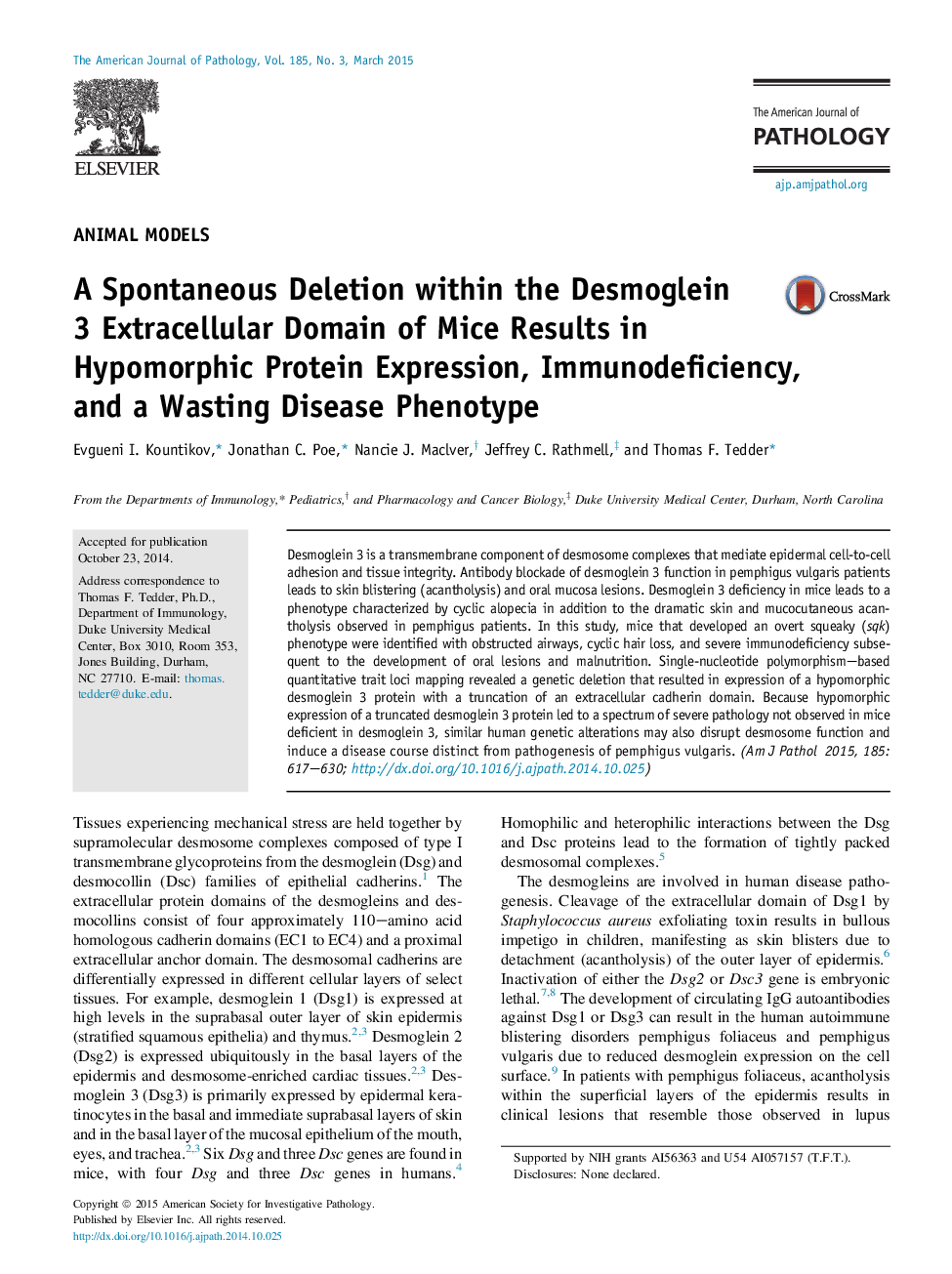| کد مقاله | کد نشریه | سال انتشار | مقاله انگلیسی | نسخه تمام متن |
|---|---|---|---|---|
| 5932486 | 1573382 | 2015 | 14 صفحه PDF | دانلود رایگان |
عنوان انگلیسی مقاله ISI
A Spontaneous Deletion within the Desmoglein 3 Extracellular Domain of Mice Results in Hypomorphic Protein Expression, Immunodeficiency, and a Wasting Disease Phenotype
دانلود مقاله + سفارش ترجمه
دانلود مقاله ISI انگلیسی
رایگان برای ایرانیان
موضوعات مرتبط
علوم پزشکی و سلامت
پزشکی و دندانپزشکی
کاردیولوژی و پزشکی قلب و عروق
پیش نمایش صفحه اول مقاله

چکیده انگلیسی
Desmoglein 3 is a transmembrane component of desmosome complexes that mediate epidermal cell-to-cell adhesion and tissue integrity. Antibody blockade of desmoglein 3 function in pemphigus vulgaris patients leads to skin blistering (acantholysis) and oral mucosa lesions. Desmoglein 3 deficiency in mice leads to a phenotype characterized by cyclic alopecia in addition to the dramatic skin and mucocutaneous acantholysis observed in pemphigus patients. In this study, mice that developed an overt squeaky (sqk) phenotype were identified with obstructed airways, cyclic hair loss, and severe immunodeficiency subsequent to the development of oral lesions and malnutrition. Single-nucleotide polymorphism-based quantitative trait loci mapping revealed a genetic deletion that resulted in expression of a hypomorphic desmoglein 3 protein with a truncation of an extracellular cadherin domain. Because hypomorphic expression of a truncated desmoglein 3 protein led to a spectrum of severe pathology not observed in mice deficient in desmoglein 3, similar human genetic alterations may also disrupt desmosome function and induce a disease course distinct from pathogenesis of pemphigus vulgaris.
ناشر
Database: Elsevier - ScienceDirect (ساینس دایرکت)
Journal: The American Journal of Pathology - Volume 185, Issue 3, March 2015, Pages 617-630
Journal: The American Journal of Pathology - Volume 185, Issue 3, March 2015, Pages 617-630
نویسندگان
Evgueni I. Kountikov, Jonathan C. Poe, Nancie J. Maclver, Jeffrey C. Rathmell, Thomas F. Tedder,